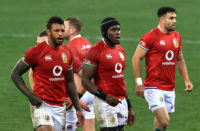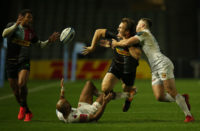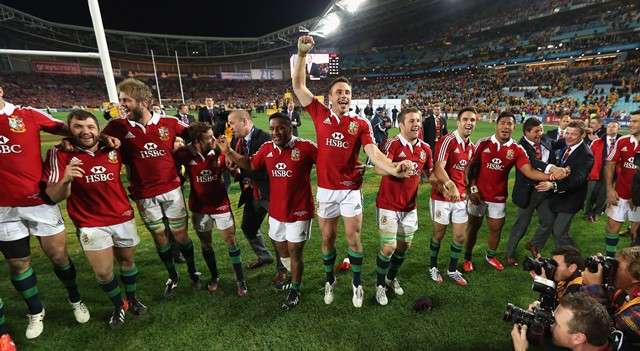 by Nick Cain
by Nick Cain
The 2017 Lions should be history-makers, with a mission to become the first Lions side of the professional era to win a series against the All Blacks. That would make them only the third Lions side to emerge triumphant from New Zealand in the 127-year history of the world's greatest touring team, following in the footsteps of their forebears in 1888 and 1971.
However, although the Lions deserve to be on an upward trajectory after the 2013 series triumph in Australia, with an even greater prize on offer in New Zealand two years from now, The Rugby Paper has learnt that they will again be handicapped massively. The 2017 Lions will embark on a far more difficult tour than they faced two years ago in Australia with virtually no preparation time and with many players leaving for New Zealand only 48-hours after playing in Premiership and Pro12 finals, where they will face the most brutal schedule the host nation has been able to put together.
Worse still, they will have been sabotaged from within, even more effectively than by the NZRFU's unforgiving tour itinerary, which culminates in three Tests against the world champion All Blacks. We have learned that a Lions request that the tour should start a week later to enable the squad to have seven days of preparation before the opening match against a Provincial Union XV – with that game on June 10 rather than June 3, and the last Test on July 15 rather than July 8 – was torpedoed by Premiership Rugby (PRL).
PRL have said that the decision to oppose any changes to the tour dates has been taken in the interests of player welfare. A spokesman told us: “We felt it was a player welfare issue, and that the end of the tour would be too close to the start of the new season.” The Premiership Rugby decision is unbelievably myopic in its self-interest. It is not as if the Premiership is ignorant of the Lions landscape, or the landmark benefits of a successful Lions tour to Rugby Union throughout the Home Nations.
The schedule foisted on the Lions officials – and agreed to – has also been met with incredulity. In a five-week period it includes matches against all five Kiwi Super Rugby franchises, as well as the New Zealand Maori, going into the three Test series.
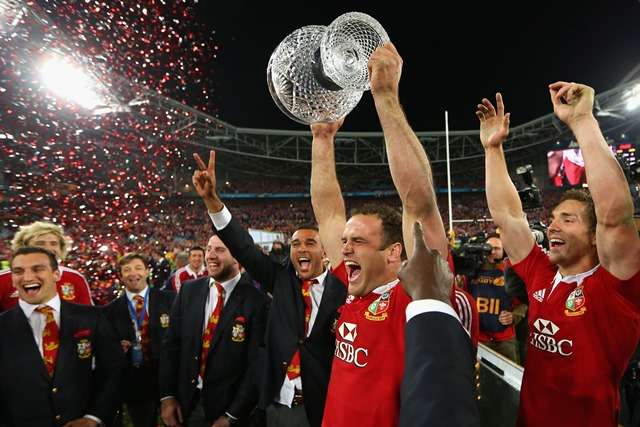
The victorious 2013 Lions head coach, Warren Gatland, spoke for many when he commented, “Whoever agreed to that schedule from the Lions point of view, it's crazy”. Gatland, a New Zealander with inside knowledge of what confronts the tourists, added: “I don't see how you could even win that. You're playing five Super Rugby sides, the New Zealand Maori, and three Tests – and another game – all in a five-week period.”
It is also extraordinary that Gatland does not appear to have been consulted by the Lions officials who negotiated the unforgiving schedule.
The lack of communication, and co-operation between the Home Unions, and between club and country – especially in England – is nothing short of staggering given the enormous benefits to the game here should the Lions beat New Zealand again.
There seems to be no understanding, either, that the 1971 Lions tour (and its 1974 counterpart in South Africa) did more to promote, popularise and revolutionise Rugby Union in the UK and Ireland – and in New Zealand, where they rediscovered back play – than any single event before the advent of the World Cup in 1987.
The Lions magic has endured into the pro era with more than 30,000 fans making the trip Down Under in 2013, just as they did to South Africa (1997 and 2009). However, before the 2013 Lions departed for Australia, the tour manager, Andy Irvine, identified the need to modernise and recommended far-reaching changes to the side's preparation. He called the concept of players setting off on the tour less than 48 hours after they had played in showpiece Premiership and Pro12 finals as “ridiculous”.
He flagged-up that the Home Unions committee agreement, drawn up to cover Lions tours from 2001 to 2017, was outmoded and detrimental to the touring side, and advocated strongly that no tour should depart after 2017 without all the players having at least two weeks preparation time together.
Given those recommendations, and the fact that the Lions tour is worth £150m to the host nation in tourist spend, including travel, tickets and accommodation – the Australian Union alone made £40m from the 2013 tour, enabling them to wipe out a £12.2m debt – you would think that it would not be beyond the wit of Lions officials, and those of the RFU and Premiership Rugby, to come up with a solution.
This would inevitably involve compensation to the English clubs – and their Welsh, Irish and Scots counterparts – for the extra week that they would have to wait before the players selected by the Lions were available to them at the start of the following season. However, given that the touring side made a profit estimated at £7m from the 2013 tour, on top of a £4m surplus in 2009, and that the Lions have the best-selling shirt brand in world rugby, an agreement should have been a formality.
The leverage the Lions financial clout gives them should also have been a winning hand in negotiations with New Zealand. Even if the Lions officials had their hands tied until the tour agreement ends after 2017, they should have made it clear to the New Zealand RFU chief executive, Steve Tew, that flexibility on the part of the host nation regarding the itinerary, and any scheduling changes, would put New Zealand in a favourable position regarding future tours of that country.
If push came to shove, and New Zealand did not budge, the Lions chief executive, John Feehan, should not have hesitated in telling them that Argentina and France would be looked at as favourable new destinations, meaning that their chances of hosting the Lions again might not come around for another 20 years.
The fact that the Lions officials have so far allowed this tour to be hamstrung (again) could be catastrophic for the touring side. The attitude appears to be that the Lions muddled through in Australia in 2013, and they can do it again, when, in reality, their chances of winning a series in New Zealand have been diminished massively by administrative bungling.
The tragedy is that, with a more level playing field, the Lions are capable of shaking the world order by beating the double world champions. It may seem like wishful-thinking following the gap that the All Blacks put between themselves and the chasing pack at this World Cup, but there are plenty of reasons for believing that New Zealand could be vulnerable given a level surface, especially in terms of preparation.
To start with, while New Zealand's 2015 World Cup legacy is glowing, the Lions also have an impressive legacy to build from. The best building block is that as many as 12 of the Test side that beat the Wallabies are still likely to be available, including the Welsh talisman who led the 2013 campaign, Sam Warburton, and his outstanding team-mate Alun Wyn Jones. So too, is Gatland, the Wales coach who masterminded the victory that restored the pride in the Lions.
More importantly, the much-trumpeted demise of Northern Hemisphere rugby based on none of the Home Unions making the last four of the World Cup speaks more of headline hot-air than cold scrutiny. The reality is that Wales and Ireland went out because of a combination of depletion – as a result of savagely-timed injury culls – and a lack of deep enough reserves at Test level.
However, they did not go quietly, and with any luck the likes of Jonathan Davies, Leigh Halfpenny and Rhys Webb will be restored to fitness well before the Lions selection process starts a year from now. By that time, England may be in a better place to contribute Lions-class backs, with George Ford, Henry Slade, Jonathan Joseph and Anthony Watson stating their cases. Up-and-coming Scottish backs like Finn Russell and Mark Bennett, and forwards like Jonny Gray, will also have a say.
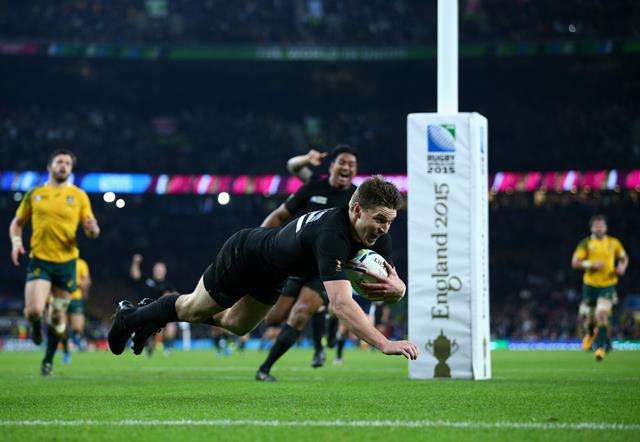
To pretend that there is no South-North gap after this World Cup would be blinkered, but it would also be a distortion to suggest that it is a yawning chasm. The small margins by which Wales failed against South Africa (a last-minute try), and Scotland were prevented from putting Australia out of the tournament (a controversial last minute refereeing decision) were a more accurate measure.
Ireland's exit was more clear-cut against an inspired Argentina, but whether it would have happened by that margin – if at all – had Johnny Sexton, Sean O'Brien and Paul O'Connell been playing is debatable.
The point, as it always is with the Lions, is that the sum of the four Home Unions is far greater than their individual parts.
The quality of the players available to the Lions is proven, and while none as individual nations have beaten this generation of All Blacks – bar England in 2012 – the collective strength that Ireland, Wales, England and Scotland can muster is enough to make the All Blacks sit up and take notice.
In fact, they have already done so. The fanfare for the 2017 Lions began in earnest before Steve Hansen and his double world champion New Zealand side departed the shores. Their laconic head coach made it clear that he would not be standing down until after the Lions tour. And if it is to be Hansen's ‘last post' there is an outside chance that Richie McCaw could also attempt a Brad Thorn. The All Black lock was 36 when he was part of the 2011 World Cup-winning side, and McCaw would be the same age if he stayed on for the Lions.
South Africa fielded the 38-year-old Victor Matfield at this World Cup as a player-coach, and it could be that McCaw is used in the same way by New Zealand. It will depend on whether the man Hansen describes as the greatest player New Zealand have produced still has the appetite for Test rugby, and for the hair-shirt physical regime that goes with it.
What is not in doubt is that captain-elect Kieran Read has huge boots to fill if McCaw calls time on his career, and so, too, does his No.7 understudy, Sam Cane. Neither Read nor Cane played badly during the 2015 triumph, but nor were they luminaries in the back-to-back campaign.
With Hansen also mindful that Dan Carter, Colin Slade, Ma'a Nonu, Conrad Smith, Tony Woodcock and Keven Mealamu are retiring from All Black duty, he will be keen that the Lions receive no favours.
Hansen is getting his way, with the NZRFU, the Lions administration, and Premiership Rugby all doing his bidding.


